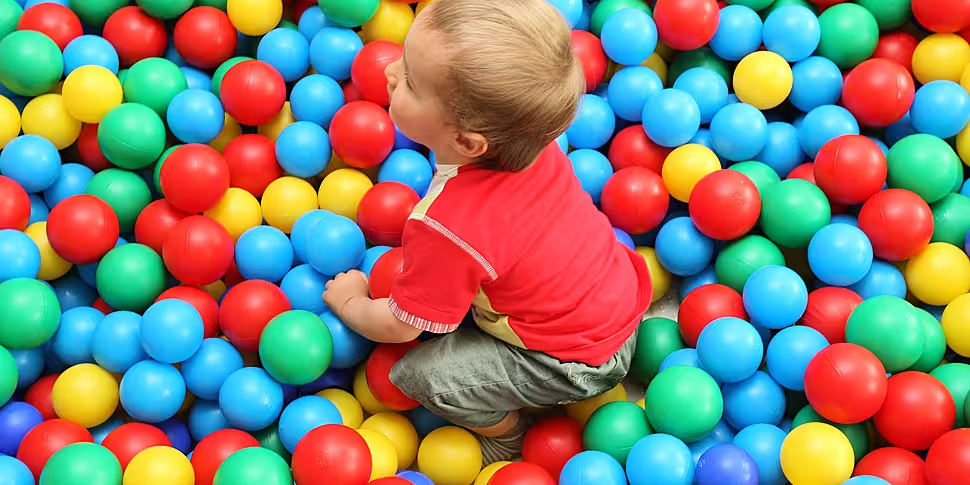Children who were born around the time of the first COVID-19 lockdown 'seem to need extra help', a nursery owner has said.
This week four years ago Ireland entered into its first lockdown because of the global pandemic.
Any child born then or in the previous year are now children with some of them starting school.
Reporter Josh Crosbie has been finding out if there's been any developmental differences with this cohort of children.
Owner of Missus Tatty's Nursery in Dublin Rachel Prouse told The Pat Kenny Show she has noticed some differences.
"We found a lot of children coming in with separation anxiety," she said.
"You would have had children that were born in the middle of it, or just before it, that didn't have that social aspect of life.
"The understanding of [parents saying goodbye at the door] wasn't there and that anxiety of, 'She's leaving me somewhere and not coming back straight away' is understandable - that's what they get used to.
"There's a lot of changes that you wouldn't know whether it's environmental changes or whether it's changes that we're just more aware of or whether it is the effects of the shutdown."
Ms Prouse said more children seem to need extra help.
"We do see a lot more children coming through the doors now that would have other issues," she said.
"[They] would have delayed learning, would have emotional issues where they're just not quite coping with normal things."
Ms Prouse said she believes problem solving "has taken a bit of a backstep".
'He didn't have space'
Emma, who has two girls aged 14 and nine, had a baby boy around the time of the first lockdown.
"The girls are definitely more social and he's definitely more weary of everything," she said.
"I think that's because he didn't have a whole lot of space, even as a one-year-old, to socialise.
"He was constantly with me, he was at home with me all the time.
"I suppose for him he's definitely [on] the quieter side and he's more nervous as a child".
Emma said she made a conscious decision to make sure he interacted with people.
"That's something that we tried not to impose on him as a child," she said.
"When Nana came over he still ran and gave her a hug as long as everybody was well.
"So I don't think that impacted him."
'Mixing with other children'
Deirdre - who has three children aged eight, seven and four - said she noticed some changes.
"The kids who were born before the pandemic had no problems going into creche," she said.
"I did notice that the first six to eight weeks my daughter who was born just before we went into lockdown she really struggled to transition into it.
"She didn't get the opportunity to go to playgroups or anything like that or mix with other children."
Deirdre said her daughter is starting school in September.
'Socially restricted'
A CORAL study examined a cohort of infants born during the first weeks of the first lockdown.
Royal College of Surgeons in Ireland (RCSI) Head of Paediatrics Professor Jonathan Hourihane outlined some of its key findings.
"25% of the children had only been kissed by their parents and one other person by the time they were a year old," he said.
"A quarter of them or so had never seen another child before they turned one.
"These are extremely socially restricted children."
Prof Hourihane while many children caught up by the time they were two, there were still some gaps.
"We still had a few children who had social and developmental concerns that some of the parents picked up on, but some of the parents hadn't because they didn't have any reference of other children.
"Fewer children were able to point to things, fewer children were able to wave bye-bye because nobody was visiting.
"Some children had lower vocabulary than groups born before the pandemic - but we're hoping that they improve over time," he added.
Prof Hourihane said lockdown was an "extremely effective way of stopping this vulnerable group of children" from getting COVID.
Pandemic development
A report from the RCSI, Children’s Health Ireland and APC Microbiome Ireland compared samples from 351 babies born in the first three months of the pandemic.
It revealed significant differences in the microbiome development - i.e. benefits for a healthy gut - of babies born during lockdown periods when compared to pre-pandemic babies.
Babies born during lockdown also had lower than expected rates of allergic conditions, such as food allergies.
Another report found that by age two, with the exception of communication, these pandemic babies were very similar to babies born before the pandemic in behaviour and development.
Children born during the pandemic had slightly lower scores in communication, even after factors such as the mother's education level and the child's age were taken into account.
Listen back here:









